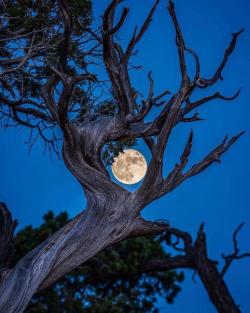RUINS
I.
SHALL we tread the dust of ages,
Musing, dreamlike, on the past,
Seeking on the broad earth’s pages
For the shadows Time hath cast;
Waking up some ancient story,
From each prostrate shrine or hall,
Old traditions of a glory
Earth may never more recall?
II.
Poets thoughts of sadness breathing,
For the temples overthrown;
Where no incense now is wreathing,
And the gods are turned to stone.
Wandering by the graves of heroes,
Shrouded deep in classic gloom,
Or the tombs where Egypt’s Pharaohs
Wait the trumpet and the doom.
III.
By the city, desert‐hidden,*
Which Judea’s mighty king
Made the Genii, at his bidding,
Raise by magic of his ring;
By the Lake Asphaltian wander,
While the crimson sunset glow
Flings its radiance, as we ponder
On the buried towns below.
IV.
By the Cromleach, sloping downward,
Where the Druid’s victim bled;
By those Towers, pointing sunward,
Hieroglyphics none have read:
In their mystic symbols seeking,
Of past creeds and rites o’erthrown,
If the truths they shrined are speaking
Yet in Litanies of Stone.
V.
By the Temple of the Muses,
Where the climbers of the mount
Learned the soul’s diviner uses
From the Heliconian fount.
By the banks of dark Illyssus,
Where the Parcæ walked of old,
In their crowns of white narcissus,
And their garments starred with gold.
VI.
By the tomb of queenly Isis,
Where her fallen prophets wail,
Yet no hand has dared the crisis
Of the lifting of the vail.
By the altar which the Grecian
Raised to God without a name;
By the stately shrine Ephesian,
Erostratus burned for fame.
VII.
By the Libyan shrine of Ammon,
Where the sands are trod with care,
Lest we, bending to examine,
Start the lion from his lair.
Shall we tread the halls Assyrian,
Where the Arab tents are set;
Trace the glory of the Tyrian,
Where the fisher spreads speads his net?
VIII.
Shall we seek the “Mene, mene,”
Wrote by God upon the wall,
While the proud son of Mandane
Strode across the fated hall?
Shall we mourn the Loxian’s lyre,
Or the Pythian priestess mute?
Shall we seek the Delphic fire,
Though we’ve lost Apollo’s lute?
IX.
Ah! the world has sadder ruins
Than these wrecks of things sublime;
For the touch of man’s misdoings
Leaves more blighted tracks than Time.
Ancient lore gives no examples
Of the ruins here we find—
Prostrate souls for fallen temples,
Mighty ruins of the mind.
X.
We had hopes that rose as proudly
As each sculptured marble shrine;
And our prophets spake as loudly
As their oracles divine.
Grand resolves of giant daring,
Such as Titans breathed of old;
Brilliant aims their front uprearing,
Like a temple roofed with gold.
XI.
Souls of fire, like columns pointing,
Flamelike, upward to the skies;
Glorious brows, which God’s anointing
Consecrated altar‐wise.
Stainless hearts, like temples olden,
None but priest hath ever trod;
Hands as pure as were the golden
Staves which bore the ark of God.
XII.
Oh! they built up radiant visions,
Like an iris after rain;
How all Paradise traditions
Might be made to live again.
Of Humanity’s sad story,
How their hand should turn the page,
And the ancient primal glory,
Fling upon this latter age.
XIII.
How with Godlike aspirations,
Up the souls of men would climb,
Till the fallen, enslavéd nations
Trod in rhythmic march sublime;
Reaching heights the people knew not,
Till their Prophet Leaders led—
Bathed in light that mortals view not,
While the spirit life lies dead.
XIV.
How the pallid sons of labour,
They should toil, and toil to raise,
Till a glory, like to Tabor,
Once again should meet earth’s gaze.
How the poor, no longer keeping
Count of life alone by groans,
With the strong cry of their weeping,
Start the angels on their thrones.
XV.
Ah! that vision’s bright ideal,
Must it fade and perish thus?
Must its fall alone be real?
Are its ruins trod by us?
Ah! they dreamed an Eldorado,
Given not to mortal sight;
Yet the souls that walk in shadow,
Still bend forward to its light.
XVI.
Earnest dreamers, sooth we blame not
If ye failed to reach the goal—
If the glorious Real came not
At the strong prayer of each soul.
By the path ye’ve trod to duty,
Blessings yet to man may flow,
Though the proud and stately beauty
Of your structure lieth low.
XVII.
Low as that which Salem mourneth,
On Moriah’s holy hill;
While the heathen proudly scorneth,
Yet the wrecks are glorious still:
Like the seven columns frowning,
On the desert city down;
Or the seven cedars crowning
Lofty Lebanon.
XVIII.
Poet wanderer, hast thou bent thee
O’er such ruins of the soul?
Pray to God that some Nepenthe
May efface that hour of dole.
We may lift the shrine and column,
From the dust which Time hath cast;
Choral chants may mingle solemn,
Once again where silence passed;
XIX.
But the stately, radiant palace,
We had built up in our dreams,
With Hope’s rainbow‐woven trellis,
And Truth’s glorious sunrise beams;
Our aims of towering stature,
Our aspirations vain,
And our prostrate human nature—
Who will raise them up again?
